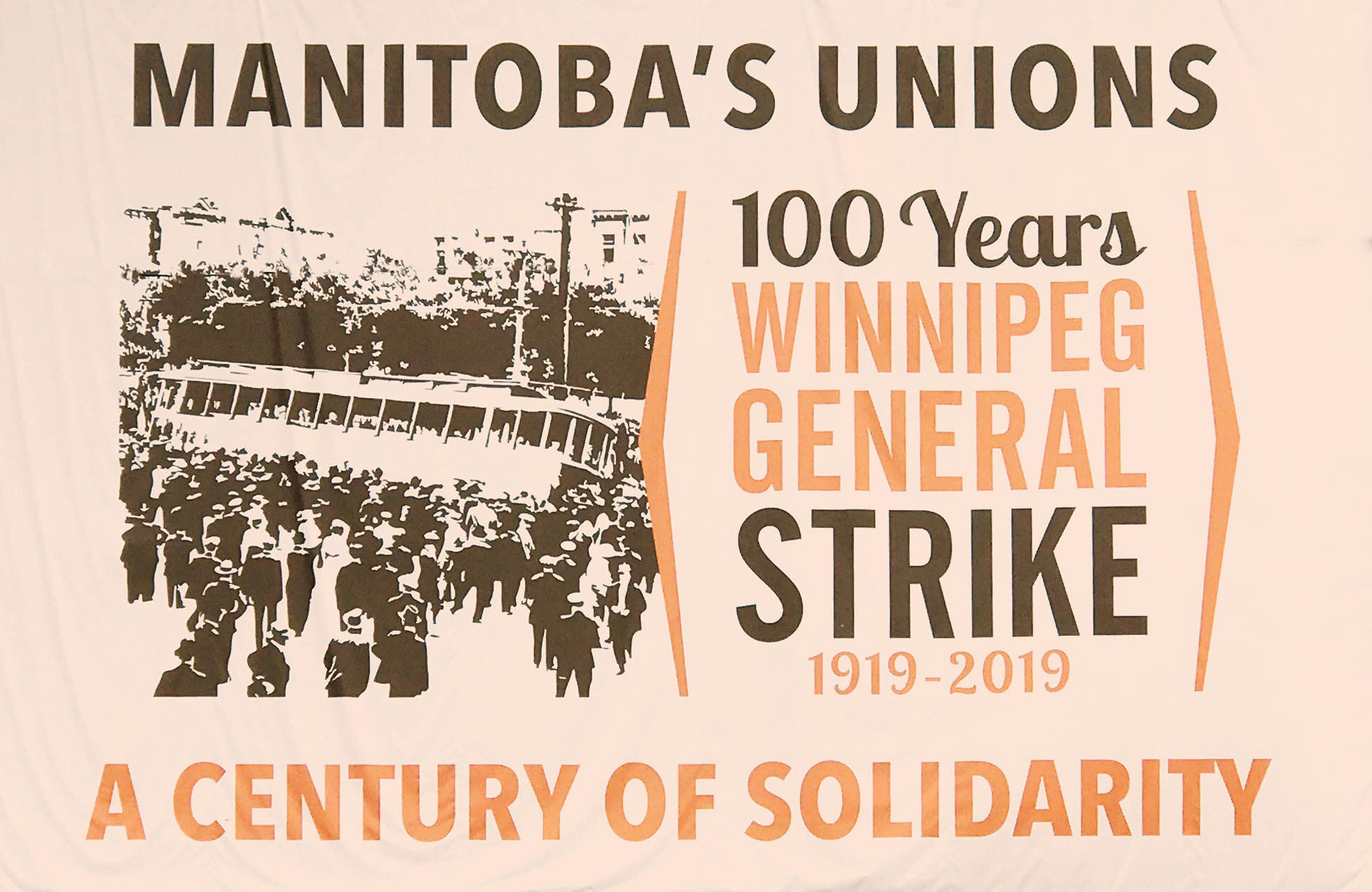“As we come marching, marching, in the beauty of the day” is the first line of the poem (and later the song) ‘Bread and Roses,’ which was inspired by the line “bread for all, and roses too” from a speech given by Helen Todd in 1910 in which she discussed the need for laws concerning wages, work conditions, and hours for working women.
Pictured here is ACTRA member Fiona Forsythe in Halifax.
Labour Day celebrations have been a part of Canadian and our labour movement history for almost as long as Canada has been a country.
Canadian labour groups have held parades and celebrations since April 1872 – five years after confederation, two months before the Trade Unions Act was passed, legalizing unions in Canada, and 22 years before Parliament officially recognized Labour Day as an official holiday in 1894.
Canadian unions have been protecting the rights of women since the 1880s – long before women were given the right to vote in provincial (between 1916-1940) and federal (1918) elections, hold office in Canadian Parliament (1919), get a divorce (1925), be legally recognized as a “person” (1929), or open a bank account without their husband’s written permission (1964).
Canada’s labour movement welcomed women as union members as early as 1881, supported the creation of the first female-only local (Hope Assembly Knights of Labour) in 1886 and has advocated for equal pay for equal work since 1882.
This year marks an especially important year in our labour history – the 100-year anniversary of the Winnipeg General Strike, which to this day remains our country’s largest strike.
Fun fact for fans of Canadian TV show Frontier, which is about the fur trade in Canada in the late 1700s:
Did you know that one of the first noted acts of collective bargaining in Canada took place between Aboriginal, Métis, French and Scottish Voyageurs against the Hudson’s Bay Company? The workers, who were based at Cumberland House in Saskatchewan, collectively went on strike in 1799 demanding better wages. In retaliation, the HBC fired the workers and withheld their back pay. The workers stood strong and, in solidarity, took the HBC’s canoes and went across the river to work for the competition, the North West Company.
Johnny Wayne & Frank Shuster
Frank Peddie, Alice Hill, Grace Webster, James Doohan
John Drainie, Jack Mather, Frank Peddie
A small group of Canadian performers banded together over 75 years ago demanding more than “a dollar a holler.” As individual artists, they knew their powers would be limited, but united, they could do anything.
Click here to watch ACTRA’s 75th anniversary video.
By the end of World War I in 1918, many workers had unionized and started demanding better pay and working conditions. On May 15, 1919, almost 30,000 thousand workers walked off the job, launching the Winnipeg General Strike and shutting down the city’s factories, transit and city services – including police, firefighters and postal workers.
In solidarity, workers in cities across the country also decided to take job action against employers with strikes taking place in Vancouver, Toronto, Halifax and Amherst, NS.
The Winnipeg General Strike lasted over two months and culminated on what is known as “Bloody Saturday” (June 21, 1919). Violence resulted in numerous arrests, injuries and the deaths of two protesters and had federal troops occupying Winnipeg’s streets. Following this tragedy and pressure from employers and the government, protesters returned to work on June 25.

Although workers saw few improvements immediately following the strike, it did have a great effect on Canadian workers over the long-term. It sparked more unionism and activism across the country and saw some strike leaders elected to government, such as J.S. Woodsworth who helped form the Co-operative Commonwealth Federation (CCF), which would later become the New Democratic Party.
Today’s labour movement in Canada was built on the shoulders of those who came before us. Without the fight and plight of Canadian unions and their workers, both union and non-union employees would not benefit from workers’ compensation, paid parental leave, unemployment insurance, universal health care and retirement benefits.
So, this Labour Day, look at it as an opportunity to take pride in being a union member and to remember those who have fought for our right to bargain collectively, for better and safe working conditions and for fair wages.
